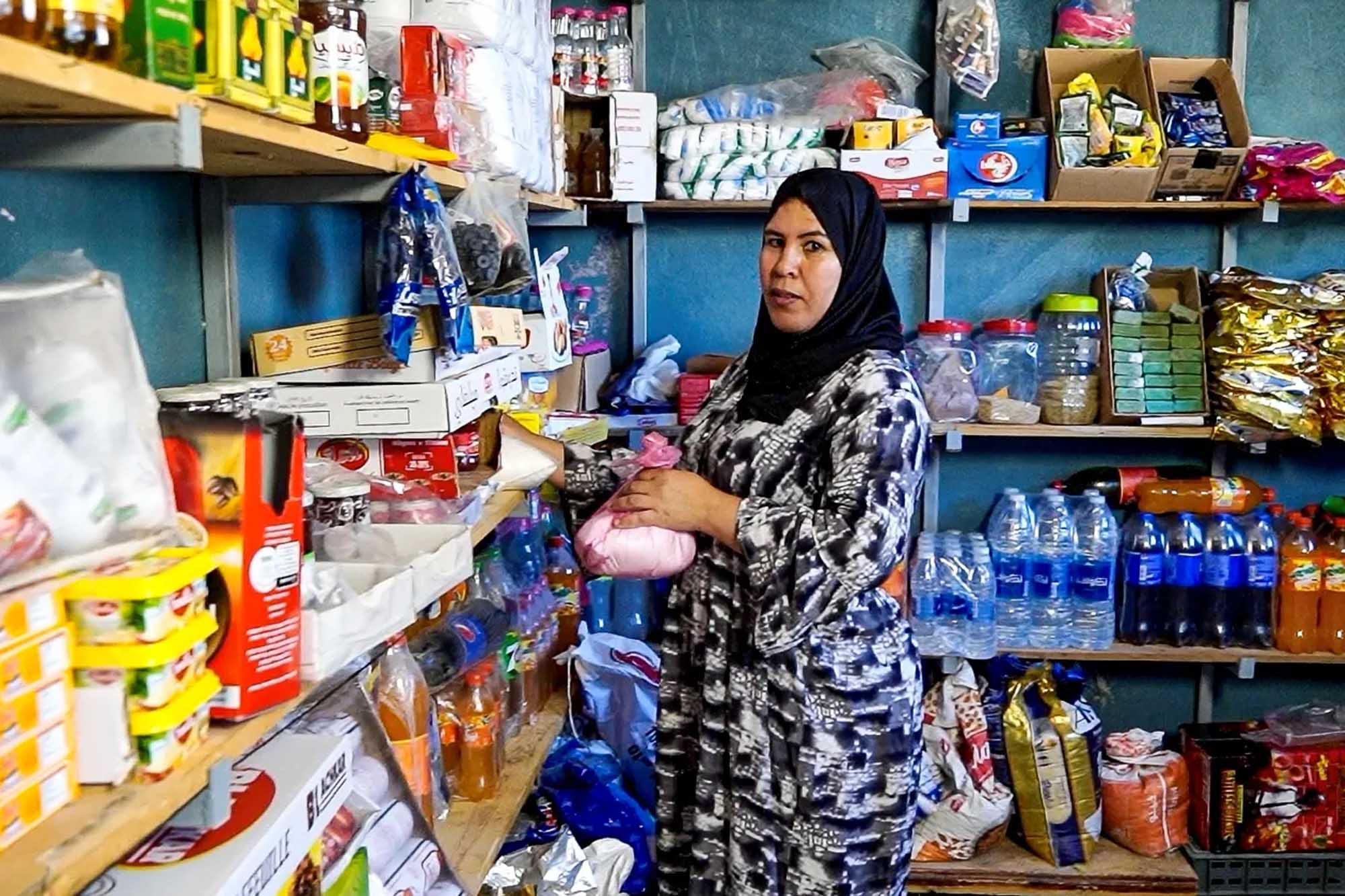Fatima Laanieg has always been drawn to hands-on work. After taking care of her home and children, she sought to contribute financially. Four years ago, she became a seasonal agricultural worker in Spain, which went well. Fatima dreamed of starting her own business but lacked resources. In 2022, she joined WAFIRA, an International Labour Organization (ILO) programme for women run by Morocco’s National Agency for the Promotion of Employment and Skills, where she expressed her desire to open a grocery shop. With training and support from her husband, she gained confidence. Her dream is to expand her small shop into a supermarket and inspire her son to learn the trade. Fatima is committed to growing her project step by step.












